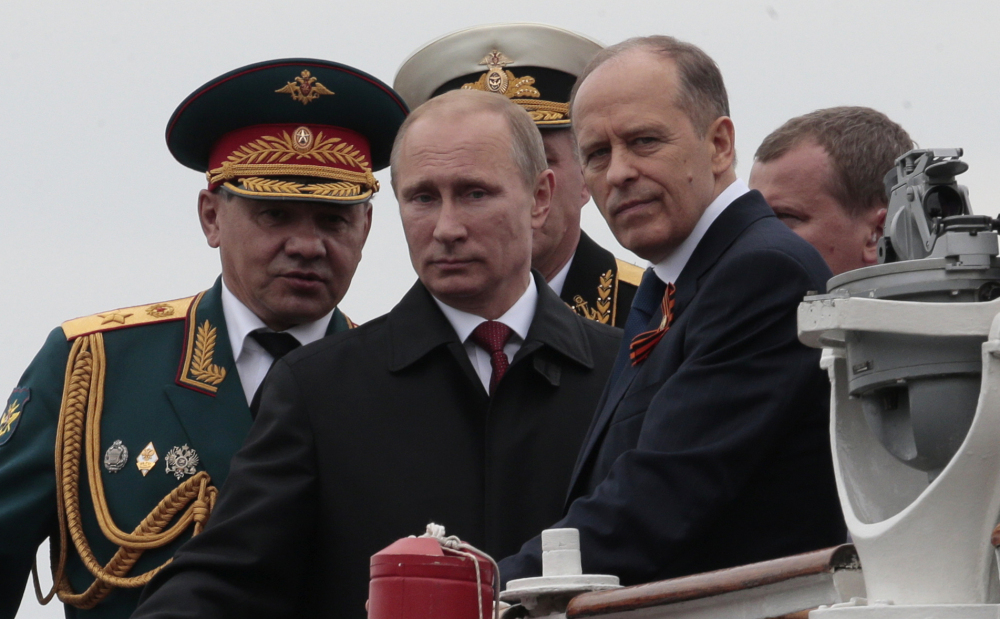President Vladimir Putin of Russia is again playing with fire. This time, it may be a summer bluff, or it may be a pretext for the escalation of war with Ukraine. Either way, it reflects Putin’s determination to deceive and subvert whenever it suits his goals, at home and abroad, taking advantage of a distracted United States and Europe.
The Russian Federal Security Service, or FSB, claimed Wednesday that one of its officers was killed last weekend near the de facto border between Crimea and Ukraine. Russia seized Crimea from Ukraine in early 2014, then backed a violent uprising in Ukraine’s eastern provinces of Donetsk and Luhansk. The latter continue to simmer with deadly force, but the line between Crimea and Ukraine had been relatively calm.
According to the FSB, the recent infiltrators were armed with bombs and ammunition, intending to destroy infrastructure in Crimea, and a second attempt occurred Monday with support from Ukrainian artillery, killing a Russian soldier. Ukraine responded that it was all “fantasy,” a provocation from Russia.
There is precious little evidence of what really happened, and this conflict has given new meaning to the old adage that in war, truth is the first casualty. But the FSB announcement sounds suspiciously like a gambit by Putin, who swiftly vowed revenge. On Thursday, Ukraine’s president, Petro Poroshenko, put his troops on combat alert.
We’ve seen this movie before. Putin’s troops stealthily took over predominantly Russian-speaking Crimea with their “little green men,” soldiers without insignia; he has never confessed to Russia’s true role in instigating and executing the Donbass insurrection nor the shoot-down of a Malaysian civilian jetliner. His military campaign in Syria has been carried out with similar disinformation and insouciance. Putin plays by his own rules, even at the 2014 Winter Olympics, his showpiece in Sochi, which the FSB and the Russian state subverted by systematically dispensing performance-enhancing drugs to Russian athletes and then covering it up.
Why spark a new battle, now? The seizure of Crimea was hugely popular at home, and Putin may be hoping for a lift before the Sept. 18 parliamentary elections, perhaps distracting Russians from the economic troubles brought on in part by Western sanctions.
Putin may also calculate that – with the United States distracted by a presidential campaign, Europe preoccupied with Brexit and the migration crisis, and the world watching the 2016 Olympic Games in Rio – this might be a window of opportunity to act without fear of a serious response.
After all, Russia repeatedly spurns U.S. requests to cooperate in Syria, and the Obama administration simply responds with more requests. The Donbass region is still riven with violence – 1,200 people have been killed in the past eight months – and the Minsk II cease-fire agreement, never fully implemented, is daily tattered by violations, yet it has all slipped from the headlines.
In 2014, President Obama and Secretary of State John Kerry urged Putin to take an “off ramp” from a deeper war in Ukraine. But Putin pays no heed to traffic directions. The United States and Europe can ill afford complacency and illusions about Russia.
Send questions/comments to the editors.


